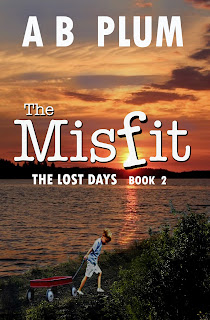Tag Archive for: psychopath
Unfettered by Conscience
/in Uncategorized/by The Stiletto GangFor someone who writes murder mysteries, I don’t really understand evil. Ironically, I get murder. Given sufficient motivation – power, love, money, rage – I can build a story around why someone goes to the extreme step of killing another human being. I certainly am not saying it’s right; but I can follow the rationale, even if it’s wrong – and I confess I can even imagine circumstances when it might even seem right (not legal, but justifiable).
But what overwhelms me, what leaves me at a complete loss, is unadulterated evil, the kind that enjoys torture and suffering, the complete disregard for human life, the sense of entitlement to the thrill of murder.
What prompted me to wander down this ugly path was the essay in O Magazine last week by Susan Klebold, the mother of Dylan Klebold, one of the Columbine teenage killers. She too is at a loss for how her son became someone she literally did not know. She insists she had no idea that he was suicidal or that he was plotting with Eric Harris to commit such an atrocity. According to the FBI, only the teens’ ineptness at explosives stopped the tragedy from exceeding the death toll of the Oklahoma City Bombing. Dylan Klebold boasted that the carnage would be “the most deaths in U.S. history.”
Ms. Klebold’s essay led me to an article in Slate, published back in 2004. The author, Dave Cullen, interviewed mental health experts who served on the FBI special task force on the incident, and their conclusion was that Klebold and Harris were two radically different individuals. Klebold was “hurting inside while Harris wanted to hurt people.” The difference is critical. They theorize that Klebold was a troubled kid who, had he not hooked up with Harris, would, at some point, probably have gotten caught for some petty crime, gotten help, and might have led a normal life. Perhaps that gives his mother some comfort, although it doesn’t help the families who lost their loved ones. Was it all a cruel twist of fate that these two teens met and created such havoc, whereas individually they couldn’t have pulled it off?
But it was Harris who was the scarier of the two adolescents. The experts agree he was a psychopath. “Harris was irretrievable. He was a brilliant killer without a conscience, searching for the most diabolical scheme imaginative.” Psychopaths, as defined by Dr. Robert Hare in his book, Without Conscience, “are rational and aware of what they are doing and why. Their behavior is the result of choice, freely exercised.”
For me, writing is fun, creative, and even when creating murder and mayhem, taps into a happy zone, because in the world I create, the good guys always win. It’s why I couldn’t have written The Silence of the Lambs, or any other book where the motivation is beyond ken, and the only mystery is whether the detective/cop can stop the killer before he strikes again. I don’t want to get that close to pure evil to write about it.
Evelyn David
Murder Takes the Cake by Evelyn David
Murder Off the Books by Evelyn David
http://www.evelyndavid.com

